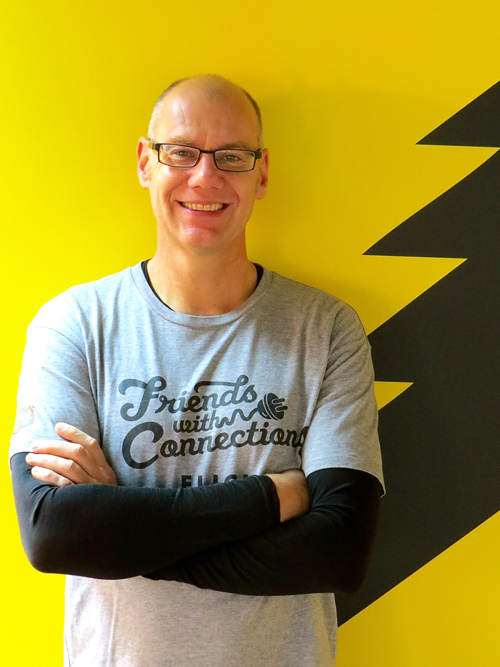Business in the bloodlines
From sand and aggregate to maritime operations, export quality oysters, and international freight forwarding – welcome to the diverse business dynasty of Callum and Jan McCallum.
From sand and aggregate to maritime operations, export quality oysters, and international freight forwarding – welcome to the diverse business dynasty of Callum and Jan McCallum.
As business empires go, the McCallum’s example may not rank up with the big multinationals, but its diversity and history are, without doubt, unique in 2015.
I’m sitting with Callum and Jan McCallum in the boardroom of Cunningham Gill, the specialist international freight forwarding company that Jan heads, located right on the doorstep of Auckland’s international airport. Callum’s busy explaining the origins of the couple’s two other businesses: McCallum Bros and Clevedon Coast Oysters. It’s virtually a history lesson – beginning with the purchase of two islands off Kawakawa Bay in the Hauraki Gulf by Callum’s great grandfather in the 1880s; and the establishment of McCallum Bros by grandfather William Fraser in 1904. It’s a business best known for its ‘Red Rock’ aggregate (chip), which has been sourced from the Karamuramu Island Quarry since 1908 and is still popular today.
The company has also been extracting high quality offshore sand from the Pakiri area on the East Coast since the Second World War. Today, core business is the supply and distribution of sand, cement and aggregates throughout the region, the replenishment of sand on Auckland City’s beaches, and various maritime operations such as barge and vessel hire.
Callum’s father, John senior, worked in the business until he passed away aged 82; Callum and Jan have two sons, Fraser and Nelson and daughter Anna. So the question is, will the business see its fourth generation of McCallums steering the ship? More on that later.
Business number three is Clevedon Coast Oysters, located right next to the family farm in Clevedon, which has been supplying the local market since 1986. Today it’s New Zealand’s third biggest oyster farm.
So how did the McCallums become oyster farmers?
The family had suitable coastal property, explains Callum, and his father saw the potential for aquaculture. Callum had been shearing, but had a science degree and learnt more about marine farming while overseas.
“In those days, local market oysters used to be export rejects. We did it the other way round, ours were always export quality. And Clevedon Coast became the first well known oyster brand after Bluff oysters,” he says.
Today the brand can be found all over the world, and Jan’s freight forwarding business has been instrumental in getting the containers to markets as far afield as Japan.
The company markets around 20 percent of its oyster volumes through its busy retail shop, nine kilometres outside Clevedon. One particular customer initiated a half-container load of oysters to mainland China, with more orders in the pipeline. “You have to admit converting business leads through the shop is a far better way to accessing China than going door-knocking,” says Callum.
A virus struck New Zealand’s oyster industry in 2010 – five years later production volume is only just back to where it was, although profitability is up thanks to healthier margins. Purchasing half of Sanford’s farms has fuelled expansion too and will help Clevedon Coast address the growing demand for bigger oysters from Asian markets, says Callum.
Jan believes one of the reasons for the oyster industry’s continued international success is the willingness of different players to collaborate on branding and shipping to fulfil larger overseas orders. Cunningham Gill helps facilitate the progress of these joint ventures.
“Other industries can learn a lot from this example,” she says. “It’s an efficient way to fill 40-foot containers and satisfy the Japanese demand.”
“Everybody wins by sharing ideas and working together to secure these big markets,” adds Callum. “It’s smarter. We achieve much more by staying lean and mean and cooperating rather than competing.”
Business couple
In the mid-80s, about the same time as Callum was starting his oyster farm, Jan was launching Cunningham Gill in partnership with Andrew Gill.
“I obtained my customs agents licence in my early twenties,” says Jan. “After working in the industry for only a few years I could see the benefit of operating as an independent customs broker/freight forwarder not bound by global quoting and routing.
“We set up at Auckland Airport as our expertise was time sensitive freight and we needed to be hands on.”
Today, with Peter Manderson on board as sales director, Jan says she has the best team she’s ever had. She’s happy with where the business is at, because they can be more flexible than the ‘big boys’.
Jan met Callum at a wedding function of two mutual friends, where he was best man.
“We were both incredibly busy with our businesses,” she recalls. “Callum had the responsibility of the family farm, where he lived, and the oyster business. So it was a bit of a culture shock for this city girl.”
As farms go it’s pretty unique too; with its own island, quarries, private beach, and boats anchored off the old homestead’s front lawn.
Three businesses, more than 100 staff, three children and an extensive farm all add up to a rather full life for Callum and Jan, although Jan admits things are easier now that Fraser is away at Otago University and the other two are at boarding school.
While they share joint responsibility to the McCallum Bros operation, Jan and Callum know they could never share the same office, and they have a strict rule of not discussing business matters at home. “Unless,” says Callum, “there’s something major going on.”
“Then the whiteboard has been known to come out,” says Jan.
“Just yesterday Callum needed to see me [about a work matter] at the office, so he made an appointment to see me,” she says. “We have to afford each other the same level of respect that we would dealing with anyone else in business.
“We also have different skillsets, and we respect that too. Callum deals with daily practical, engineering-related issues; my skills are more around planning, financial and legal aspects of business management.”
The couple are agreed on their complementary personalities too. Callum’s the problem-solver, sets achievable goals and inherited his father’s propensity for perfection – ‘doing things once, doing things right’. Jan, not surprisingly, is an organiser, a detail person who can quickly unravel complicated legal documents.
“We never compete with each other unless we are on the tennis court,” continues Jan, cheekily adding that she doesn’t rate Callum’s tennis skills very highly!
There’s no time for boredom in the McCallum household – when the kids are home they all pitch in with various farm jobs. Family holidays and travelling are important too.
“We make sure it happens,” says Jan. “We play a lot of tennis together, ski together, go fishing and sail together.
“I have Wednesday mornings off to play competitive tennis which keeps me sane. Callum likes to have a physical day on the oyster farm now and then to chill out.”
Growth opportunities
In November 2014, Callum and Jan acquired total ownership of McCallum Bros; they’ve since been working on amalgamating the three companies to allow group buying power and promotional opportunities.
With the growth in New Zealand’s building and construction market, the timing couldn’t be better, they say. Sales are up across the board. “Every month’s a record month right now,” says Jan. Even the coastal freight business is going gangbusters; McCallum vessels specialise in the movement of bulky ‘ugly freight’ that can’t be handled by New Zealand’s increasingly congested road network. There’s been diversification into other freight categories too, such as logs.
The maritime sector is where there’s potential for growth. It’s been helped by some smart decisions around equipment purchasing too – a new ocean going tug, and an 84-metre barge brought over from Australia that is moored at Auckland’s main port and being used as a floating depot to stop the double handling of bulk sand.
McCallum sand is used in concrete supplied for many of Auckland’s high profile construction projects, including the Waterview Connection, Sky Tower and Newmarket Viaduct.
Teamwork and strategy
Both Jan and Callum appreciate that they wouldn’t be where they are today without having a great team around them. “It’s true that your staff are your greatest asset,” says Jan.
“Know your limitations and hire help where needed,” is her advice. “Realise that you’re always learning and don’t always know best.
“Also, know that change is the only constant in business, so go with it and adapt. Be as flexible to change as possible.”
Juggling multiple businesses does make life interesting at times. For example, when the Kiwi dollar drops, as it did earlier this year, it signals mixed fortunes. It’s not good news for Cunningham Gill, when dealing with imported goods; but it is for an export firm like Clevedon Coast Oysters. Nevertheless, it illustrates how complementary the businesses are.
The McCallums have a long-term strategy when it comes to growth, and they’d like to think their kids may one day have a place within their organisation. In all likelihood Callum thinks they’ll be out of their 20s when that happens, and know what life’s about.
“We’ve encouraged them to follow their own dreams,” says Jan. “Our hope is that we’ve inspired the right work ethic and sense of family in them, so they’ll want to be involved in decision making that will benefit the family as a whole, and all three businesses.
“We believe that family members only have a job if they have what it takes.”
“And they can add value,” adds Callum.
Meanwhile the couple is putting systems in place to allow for more travel, more family adventures, and more time out in the future.
While they want to ensure steady-as-she-goes growth of their mini-empire, the goal is to eventually ease back from the daily grind of business management.





